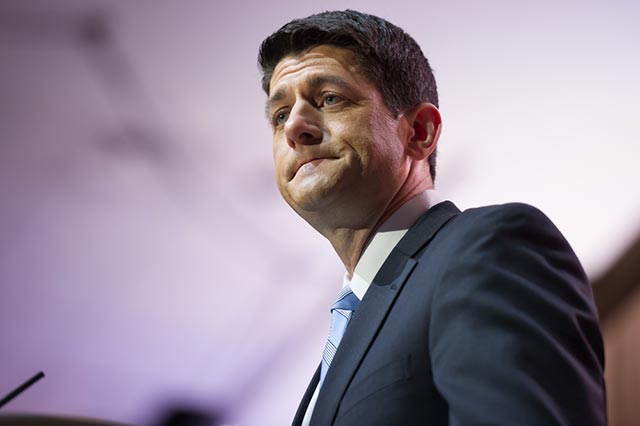
Everyone has seen the news stories about how Representative Paul Ryan, the likely next speaker of the House, is a budget wonk. That should make us feel good, since we would all like to think a person in this position understands the ins and outs of the federal budget. But instead of telling us about how much Ryan knows about the budget (an issue on which reporters actually don’t have insight), how about telling us what Ryan actually says about the budget?
Unless reporters give Ryan a pop quiz, they really don’t know what he knows about the budget, but they do know what he says. And, he has said a lot on the budget and much of it is very clear. In addition to wanting to privatize both Social Security and Medicare, Ryan has indicated that he essentially wants to shut down the federal government in the sense of taking away all of the money for the non-military portion of the budget.
This is a fact that is easy to find for any reporter who could take a few minutes away from telling us what a great budget wonk the next speaker is. In 2011, when he chaired the House Budget Committee, Ryan directed the Congressional Budget Office to score his budget plans. The score of his plan showed the non-Social Security, non-Medicare portion of the federal budget shrinking to 3.5 percent of GDP by 2050 (page 16).
This number is roughly equal to current spending on the military. Ryan has indicated that he does not want to see the military budget cut to any substantial degree. That leaves no money for the Food and Drug Administration, the National Institutes of Health, The Justice Department, infrastructure spending or anything else. Following Ryan’s plan, in 35 years we would have nothing left over after paying for the military.
Just to be clear, this was not some offhanded gaffe where Ryan might have misspoke. He supervised the CBO analysis. CBO doesn’t write-down numbers in a dark corner and then throw them up on their website to embarrass powerful members of Congress. As the document makes clear, they consulted with Ryan in writing the analysis to make sure that they were accurately capturing his program.
So what percent of people in this country know that the next speaker of the House would like to permanently shut down most of the government? What percent even of elite educated policy types even know this fact? My guess is almost no one; we just know he is a policy wonk.
The media’s obsession with telling us that Ryan is a wonk, couple with an aversion to telling us anything about where his wonkism takes him, is unfortunately the norm for political reporting. We get a very similar charade after every presidential debate.
Like frustrated theater critics, the network commentators will invariably tell their audience which candidates were forceful or comfortable and which ones appeared nervous or unprepared. They almost never delve in the substance of the debate by explaining where candidates may have misrepresented facts or be proposing policies with a proven track record of failure.
This is 100 percent backward. Most people do not follow policy closely enough so that they could realize if a candidate asserted a fact about the budget or foreign policy issue that was not true. The reporters covering the debate could provide very useful information by correcting such incorrect statements and providing the necessary background. They could also highlight instances where candidates seemed to be promoting genuinely new programs or showing other policy insights.
While competent reporters would have an advantage over most of the audience in policy matters, the commentators have no special expertise in determining which candidates looked forceful or nervous. The millions of people watching the debate are probably every bit as qualified as the network commentators in recognizing a nervous or confident person. We are all interacting with people all the time, and making judgments about their competence and sincerity. There is no reason to think a political commentator at NBC or NPR is any better at making such judgments than the people watching the debate on television.
The budget wonkism of Chairman Ryan is a beautiful example of the failure of the national media to take their job seriously. Telling us he is a wonk, without telling us the content of his wonkism, is a bad joke which should get people very angry at the folks who pretend to give us the news.
We have 9 days to raise $50,000 — we’re counting on your support!
For those who care about justice, liberation and even the very survival of our species, we must remember our power to take action.
We won’t pretend it’s the only thing you can or should do, but one small step is to pitch in to support Truthout — as one of the last remaining truly independent, nonprofit, reader-funded news platforms, your gift will help keep the facts flowing freely.